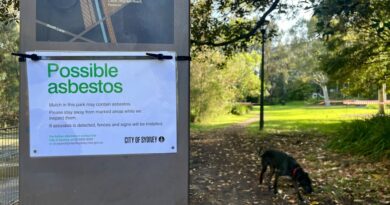Government approves HumeLink transmission project connecting Snowy Hydro 2.0 to grid
A major transmission project that will connect Snowy Hydro 2.0 to the energy grid has received final government approval, taking the total cost of the pumped hydro scheme to almost $17 billion.
The $4.8 billion HumeLink project will link Snowy 2.0 through 365 kilometres of high-voltage power lines in regional New South Wales, between Wagga Waga, Bannaby and Maragle.
When operational, HumeLink will provide an extra 3 gigawatts of renewable energy to the energy mix.
The Snowy Hydro Scheme expansion has been plagued with delays and cost blowouts.
It was initially costed at $2 billion but that has increased over the years and it is now estimated to be $12 billion.
While the costs of the two projects are separate, both are required to link the power to the energy grid.
Once connected, the infrastructure will provide enough energy storage to power 3 million homes for a week, according to the government.
Environment Minister Tanya Plibersek said the approval had been subject to extensive public consultation in NSW and through the Commonwealth.
“The renewable energy transition is real, it’s happening right now. And it’s the only plan supported by experts and business to deliver clean, affordable and reliable power for home,” she said in a statement.
“I’ve approved almost 70 renewable energy projects — enough to power more than 7 million Australian homes.”
Ms Plibersek added the HumeLink project would be subject to strict conditions to protect nature, including limits on land clearing and impacts on threatened species.
Project expected to be completed in 2027
Construction of the project is estimated to generate 1,600 jobs when it begins in 2025 and is expected to be complete by 2027, followed by Snowy 2.0 in 2028.
But the construction of powerlines as part of Labor’s Rewiring the Nation program has been polarising in regional parts of the country.
The transmission projects have faced resistance from some communities and farmers as companies have sought property acquisitions in prime agricultural land to build powerlines.
Labor argues most of the new transmission lines from HumeLink will be within existing transmission corridors.
The Australian Energy Market Operator has identified the project as a priority to help replace power from coal plants that are coming offline.
Ms Plibersek said the project was essential to delivering cheaper power to the system.
“Peter Dutton’s risky nuclear scheme puts every single one of these projects and thousands of jobs at risk, including 1,600 jobs through this project,” she said.
“Their plan takes too long, costs too much and puts up power bills. It’s not right for Australia.”





